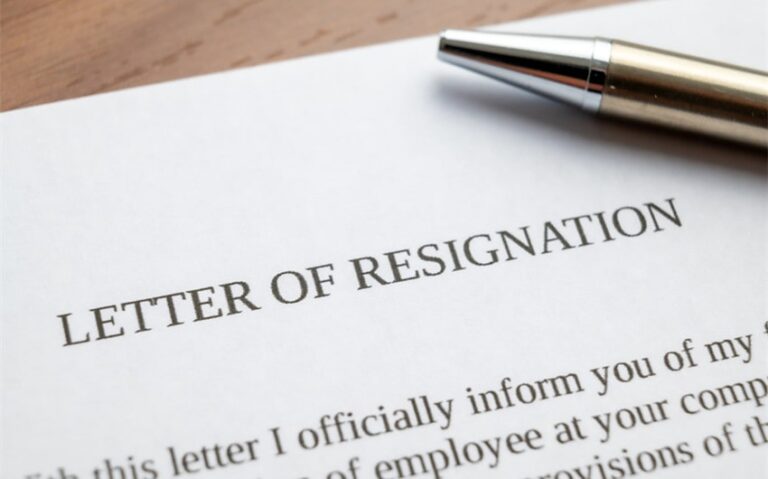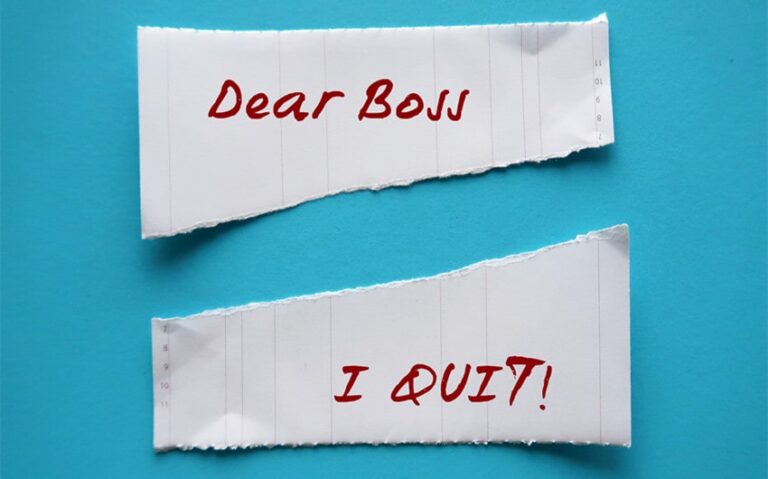15 Honest Signs I Need a New Job (And What to Do Next)
Let’s be real: work isn’t supposed to be a non-stop joyride. There are deadlines, meetings that could’ve been emails, and coworkers who chew way too loudly. But there’s a difference between occasional frustration and the sinking realization that your job just isn’t working for you anymore. If you’ve been silently wondering, “Are there signs I need a new job?”—the answer may already be knocking on your door in the form of daily dread, burnout, or a total lack of motivation.
This isn’t about making a rash decision or quitting on impulse. It’s about tuning into your reality, recognizing the warning signs that something isn’t right, and making an empowered move toward something better. Because your time, energy, and well-being are worth more than a paycheck that drains you.
Let’s walk through 15 honest signs that you might need a new job—and what steps you can take if those signs hit a little too close to home.
1. You Dread Going to Work Every Day
Not just Mondays. Not just quarterly reviews. Every. Single. Day.
If the thought of logging into your work laptop or walking into the office makes your stomach sink, something’s wrong. Sure, everyone has bad days, but if that sense of dread is chronic—lingering through weekends, creeping into your evenings, and ruining your sleep—it’s one of the most powerful signs you need a new job.
You deserve to wake up with something to look forward to, or at the very least, not something to escape from.
2. Your Job Is Hurting Your Mental Health
When a job becomes a source of chronic anxiety, depression, or emotional exhaustion, it’s no longer “just work.” It’s a mental health risk. If you’ve noticed changes in your mood, confidence, or general emotional well-being and can directly link it to your job, it’s time to take that seriously.
Stress is part of life, yes—but when it’s unrelenting and tied to your workplace, it’s a signal that something deeper needs to change. A good job supports your growth. A bad one can slowly chip away at it.
3. You Feel Stuck and Unmotivated
If you’re simply going through the motions—doing what’s necessary but with zero energy, ambition, or interest—it may be a sign you’ve outgrown the role. Everyone hits a rut from time to time, but long-term stagnation kills creativity and confidence.
Ask yourself honestly: are you learning anything new? Are you excited about the projects ahead? If you’re constantly watching the clock, counting down to weekends, or feeling numb about your contributions, that lack of fulfillment isn’t going to magically resolve itself. It’s a strong sign you need a new job that challenges and inspires you again.
4. You’ve Outgrown Your Role (and There’s Nowhere to Go)
Maybe when you started, the job was perfect—a challenge, a great fit, even exciting. But now? You’ve mastered your tasks. You’ve hit a ceiling. There’s no upward mobility in sight.
Growth is essential in any career. If your role has become a dead end, and the company offers no clear development path or support for your ambitions, it may be time to seek a job that actually allows you to evolve professionally.
5. You’re Not Paid What You’re Worth
Let’s talk money. You’ve taken on more responsibility, upped your skills, and maybe even trained other people—yet your paycheck hasn’t budged. Or worse, you know for a fact that your peers are earning more for similar work.
If your compensation no longer matches your value, and your company refuses to correct it, it’s not loyalty that’s keeping you—it’s underappreciation. Being underpaid over time doesn’t just hurt your bank account—it chips away at your motivation and self-worth. You deserve to be compensated fairly for the work you do.
6. Your Efforts Go Unnoticed
No feedback. No recognition. No thank-you. You’re putting in the work, delivering results, even stepping up when no one else will—but it’s met with silence.
A lack of acknowledgment doesn’t just feel bad—it creates long-term resentment. Humans thrive on appreciation and connection, and if your workplace can’t even muster a “nice job” occasionally, that absence speaks volumes. One of the clearest signs you need a new job is when you feel invisible despite doing your best.
7. Your Boss or Leadership Is Toxic (or Checked Out)
Bad leadership trickles down. Maybe your manager micromanages every breath you take. Maybe they’re completely absent and unresponsive. Or maybe they create a culture of fear, favoritism, or competition.
Whatever form it takes, toxic or ineffective leadership isn’t something you should adapt to. If you’ve tried addressing it, and nothing changes, don’t sacrifice your peace. A supportive, emotionally intelligent manager makes all the difference. If you don’t have one, that’s not your failure—it’s your company’s.
8. The Company Culture Doesn’t Match Your Values
Your company preaches teamwork but rewards competition. It says it supports diversity but has no inclusive leadership. It claims to care about mental health but expects you to respond to emails at 11 p.m.
When there’s a disconnect between your values and the culture around you, you feel like you’re constantly pretending. That misalignment drains your energy and passion. You don’t have to force yourself to fit into a system that was never designed with your well-being in mind.
9. You’re Always Tired or Sick
Chronic fatigue, recurring headaches, stomach issues, insomnia—these aren’t random. If your body is sending you distress signals, listen. Long-term stress and burnout manifest physically. If your job is affecting your health, it’s not “just stress”—it’s a red flag.
You shouldn’t have to sacrifice your body for a paycheck. If rest, boundaries, or conversations haven’t helped, it might be time to consider what leaving could do for your physical wellness.
10. You Don’t Trust or Like Your Team
Trust is the backbone of any functional work environment. If you can’t count on your teammates, don’t feel comfortable speaking openly, or actively dread interactions with your coworkers, that’s a major problem.
Toxic coworkers, gossip-filled environments, or passive-aggressive behavior don’t just create tension—they erode psychological safety. You deserve to work with people who make you feel respected, supported, and human.
11. You’re Constantly Working Overtime Without Reward
Putting in extra effort now and then is normal. But if you’re clocking in early, staying late, and answering weekend emails regularly without additional compensation or recognition, something’s wrong.
Burnout doesn’t always come with a warning. Sometimes it sneaks up gradually while you’re trying to “prove” your worth. But overworking without reward or boundaries is a classic sign it’s time to rethink your current role.
12. You Fantasize About Quitting All the Time
Be honest. How often do you imagine saying, “I quit”? How often do you daydream about handing in your resignation and walking out with theme music playing in your head?
If quitting your job has gone from a fleeting frustration to a weekly mental movie, take that as a sign. You’re emotionally detaching. And if your subconscious is already out the door, it might be time for your next move to catch up.
13. You’ve Stopped Caring
You used to double-check everything. You used to show up with ideas and care about the outcome. Now? You do the bare minimum. You no longer offer suggestions. You watch mistakes happen and think, “Not my problem.”
Apathy is often a protective mechanism. When we stop caring, it’s usually because we’ve given all we can and received too little in return. If indifference has replaced pride or passion, it’s time to pay attention to what that emotional detachment is trying to tell you.
14. You Feel Like You’re Wasting Your Potential
This one’s deep. You know you’re capable of more. You have ideas, creativity, intelligence, and drive—but your current role isn’t using any of it. You’re not growing. You’re not evolving. You’re just… existing.
This isn’t about ego. It’s about honoring the fact that you have gifts that matter. And if your job doesn’t make space for them, someone else’s will. Don’t dim your light just because your current room is too small.
15. You Know Deep Down That It’s Time
This is the most important one. Sometimes you can’t explain it logically—but you feel it in your gut. You’ve tried to convince yourself it’s “just a phase,” but the signs keep piling up. You’re no longer excited. You’re not aligned. And staying feels like you’re shrinking.
If your intuition is whispering—or screaming—that it’s time to move on, don’t ignore it. That voice is often more honest than any pro-con list.
What to Do If You Recognize These Signs
Realizing you need a new job isn’t easy. It’s scary. It challenges your sense of stability. But it can also be the most freeing, empowering shift you ever make. Here’s how to navigate it:
1. Reflect, Don’t React
Before making any major decisions, take stock. Journal your thoughts. What exactly feels wrong? Is it the job itself, the environment, the industry, or something internal?
2. Talk It Out
Speak to trusted friends, mentors, or a coach. Sometimes, just voicing your concerns helps clarify your next step.
3. Update Your Resume (Even If You’re Not Quitting Yet)
Refreshing your resume and LinkedIn can reignite your confidence. It reminds you of what you’ve accomplished—and what you’re still capable of doing elsewhere.
4. Start Exploring
Quietly research other roles. Look into companies that align with your values. Even if you don’t apply yet, it shifts your energy from “trapped” to “empowered.”
5. Set a Timeline
If quitting today isn’t an option, set a realistic goal. Six months to transition? Three months to start applying? Give yourself a timeline to act on—not just a wish to daydream about.



